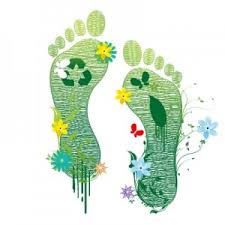
GREENKEY KENYA – UNLOCKING SUSTAINABILITY IN THE TOURISM INDUSTRY
Rural development has for a long time centered on the intensive exploitation of land natural resources such as agriculture and forestry. Increasing globalization has over time changed the phase of rural areas from mere resource extraction centers into a more diversified economy. At the center of this paradigm shift sits tourism. Rural development is the process of improving the quality of life and economic wellbeing of people living in rural areas, often relatively isolated and sparsely populated areas.

Owned by the community and backing wildlife conservation and anti-poaching, Sarara holds an important position in this region and really does make a difference. Rangers keep poaching down to almost nothing, wildlife is flourishing, and the local people get an excellent income from the lodge through bed night fees and conservation fees. Water pumps, schools and health projects have been some of the benefits from this income.
PHOTO CREDIT: SARARA CAMP
Rural populations face increasing challenges of aging populations, depopulation and declining traditional economies. Tourism plays a big role in the development of rural areas. It is estimated that 76% of the developing world’s poor population reside in rural areas. Disparities between rural and urban areas are on the rise, especially in many developing nations, Kenya included. Tourism, however, is an important tool in addressing poverty in rural areas. It is because of this that the United Nation World Tourism Organization (UNWTO) has designated 2020 as the year of Tourism and Rural Development.
World Tourism Day, marked annually on 27th September will be used to raise awareness on the role of tourism in rural development. Rural communities are the most affected by the impacts of covid-19 as they still lack diversified economic activities. The tourism sector, in reviving the rural economies, can invest in models that place focus on the empowerment and the engagement of local communities, inclusion and preservation of local natural and cultural resources. There is need for tourism to industry to build resilience among rural communities through market diversification, fighting seasonality, social protection and building added value experiences.
Expansion of tourism in rural areas leads to increased sustainability of the population and the economy. However, greater impacts of tourism on rural and local populations can only be achieved if tourism itself operates sustainably. A sustainable tourism model seeks authentic, unique experiences and local lifestyles. Rural areas offer natural, unspoiled landscapes and provide authentic accommodation. Cultural experiences and interactions with locals are increasingly popular, as well as agri-tourism and farm stays.
Tourism facilities operating in a sustainable model or are eco-certified have proven to promote rural and development more because of their increased engagement with rural communities and investment in rural economic diversification.
Green Key Kenya advocates for a holistic sustainability model with well laid down framework on how your tourism facility can engage local populations more in its operations.





















